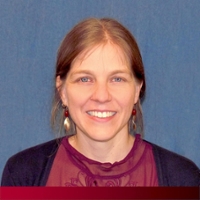Senior Medical Writer at Articulate Science in Atlanta, GA; Former Postdoc, Department of Biochemistry; 2010-2014.

Interview by Michelle Kim, PhD
Postdoctoral Fellow, Dept. of Chemistry, ECAS
Dr. Kate Mills-Lujan received her undergraduate degree in Biochemistry from the Universidad del Valle de Guatemala, a MS in Plant Science from the University of Arizona, and a PhD in Plant Pathology from the University of Georgia. She moved down to Atlanta in 2010 to begin her postdoctoral work with Dr. Anita Corbett in the Department of Biochemistry. Her research involved understanding how mutations to a specific RNA-binding protein could lead to intellectual disability (mental retardation). She was a dedicated mentor to both high school and undergraduates in Emory-sponsored research programs such as SIRE and SURE. She is now a senior medical writer at ArticulateScience in Atlanta, Georgia. When Kate and her husband are not busy with their two children, she loves to sneak in a yoga class.
How did you learn about the medical writing field?
I began to consider areas outside of academia during my time as a postdoctoral fellow. My PI was extremely supportive with her students who were seeking non-academic positions. She provided us with time and flexibility to experience non-faculty career paths. I personally learned about the medical writing field through a coworker who was a interning at the Office of Technology Transfer. I researched it thoroughly and thought it was an interesting area to pursue. Then, Gaia from the Office of Postdoctoral Education organized a career symposium. By good fortune, I met a medical writer at the symposium who is now one of my coworkers!
What do you enjoy most about medical writing?
I may not be at the bench anymore, but I love how I am still involved with cutting edge science. For example, I get to play a part in the development of publications that communicate the latest research to scientists and doctors. I also still get to teach but in a different form. For example, I create training materials for medical science liaisons on specific disease states or prepare symposia, in collaboration with key opinion leaders, to educate physicians on new therapeutic options.
Can you describe what an average day in the office looks like?
Fortunately, there are no average days at the office – one aspect that I love about my job. A typical day can start around 9am. I might be writing an abstract in the morning, and then join a kick-off call with a client in the afternoon. I could be working on a slide deck for medical science liaisons, and then receive comments from an author on a manuscript that need to be addressed immediately. Sometimes a client will have an urgent request, and then it is all hands-on-deck. Usually, I will leave around 5pm, but there are longer work days than others depending on deadlines or congress cycles.
What advice do you have for postdocs who are interested in the medical writing field?
Be proactive: join the Postdoctoral Association’s science writing committee at Emory, or intern with the Emory’s Office of Technology Transfer. Both areas will give you valuable writing experience. Try to attend any alternative career symposia and don’t forget to network! Connect with other medical writers from Emory or LinkedIn. Try to find an experienced medical writer who would be willing to review your CV for medical writing positions. Often it is how you present yourself on your CV that will help you get the interview. Also, keep in mind that routing your CV to Human Resources through “an insider” is key to getting your foot in the door.
This interview was published in February 2018.

